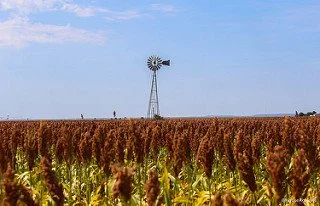Does Running a Dairy Farm Violate Your Neighbor's Religious Rights?
/On January 16, 2018, the Indiana Court of Appeals upheld Rush County's decision to allow a dairy to build a new farm in rural Rush County. The Court rejected several arguments made by a nearby camp that the dairy's operation would violate their religious rights. These were unique arguments, considering whether RLUIPA (Religious Land Use and Institutionalized Persons Act), RFRA (Religious Freedom Restoration Act), and the constitutional guarantee to freedom of religion are violated when a modern dairy farm is operated within one-half mile from a rural church camp.
The Indiana Court of Appeals rejected the camp's religious arguments under all of these novel challenges.
“RLUIPA applies to land use regulations imposed by a government directly on religious groups.”
RLUIPA. Under RLUIPA, no government shall impose or implement a land use regulation in a manner that treats a religious institution on less than equal terms with a nonreligious institution. RLUIPA also forbids a government to “impose or implement a land use regulation in a manner that imposes a substantial burden on the religious exercise of a person, including a religious assembly or institution, unless the government demonstrates that imposition of the burden on that person, assembly or institution—(A) is in furtherance of a compelling governmental interest; and (B) is the least restrictive means of furthering that compelling governmental interest." Courts have held that a zoning law that limits a claimant's use of land is a regulation subject to RLUIPA if the claimant has a property interest in the regulated land.
The Court of Appeals held that RLUIPA did not apply here, where the government action was not directed at the religious group (the camp). The government action was directed at the dairy farm, and any effects from the dairy on neighboring properties was outside of RLUIPA's protections. To hold otherwise would open RLUIPA claims to any citizen who claimed the dairy affected them. The court noted this would be an "absurd result."
RFRA. The Indiana RFRA prevents a government from substantially burdening a person's exercise of religion unless the burden is in furtherance of a compelling government interest and is the least restrictive means of furthering that interest. The camp presented evidence the dairy would cause odors and waste runoff that would affect them. The dairy's attorneys and engineers contested this evidence by presenting testimony there would be no runoff and odors would be mitigated by various modern technologies and a shelterbelt of trees. The County agreed with the dairy. The Court of Appeals refused the camp's invitation to reweigh evidence that was before the BZA. There was no substantial burden on religion and RFRA did not apply.
Constitution. Finally, the camp asserted the dairy's special exception violates the camp's religious rights under the Indiana Constitution. The camp argued the county had impermissibly "materially burdened" its religious rights. The Court of Appeals rejected this claim, pointing out that the County had substantial evidence before it to support its decision. The camp's exercise of religion would not be substantially burdened by the operation of a dairy one half mile away. The Court deferred to the County's findings.
This case involved two core rights: the right to use farmland for agricultural purposes, and the freedom to exercise religion. The Court of Appeals ultimately held that, at least in this instance, the right to milk cows does not infringe on the right to attend a religious camp.
A copy of the opinion (House of Prayer Ministries, Inc. v. Rush County BZA and Milco Dairy Farm, LLC) is available here.





